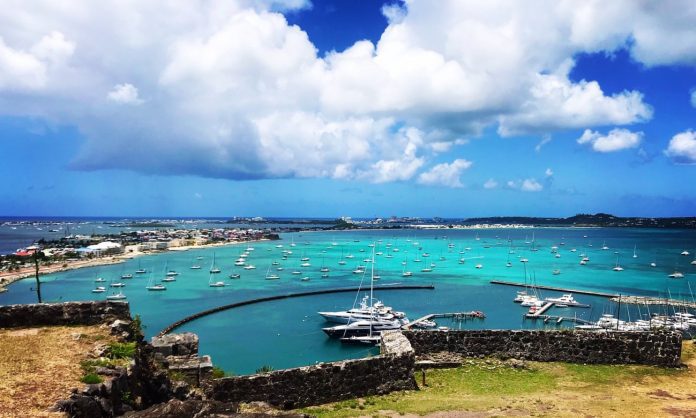Covid-19 has marooned people living on small boats worldwide. Now hundreds of anxious sailors are preparing to make dangerous voyages home across the Atlantic
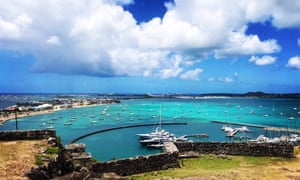
With a 3,600-mile non-stop solo sail across the Atlantic ahead of him, Garry Crothers is a little anxious. But he has to get moving before the hurricane season. “I’m in a bad place here, I don’t have any choice,” he says.
Like many living aboard their sailing boats, he has been stranded at sea by Covid-19. The 64-year-old Irishman has been on Kind of Blue, his 43ft aluminium boat, for two months, hardly touching land. He’s anchored off Sint Maarten, in the Caribbean – a less pleasing prospect than it sounds. Hurricane season officially starts on 1 June and the island, as Crothers is acutely aware, is “bang in the middle of the hurricane belt” – hit hard by Dorian last year, and Irma in 2017. Neighbouring countries and islands that might afford protection are shut. Crothers’ only safe option is a solo sail home to Ireland.
In one sense he’s not alone. An estimated 500 boats are crossing the Atlantic to Europe in the coming weeks. From the South Pacific to the Indian Ocean, thousands of people are trying to sail home or find shelter.
While stranded cruise and navy ships have made headlines, far less attention has been paid to the plight of hundreds of families and individuals on small boats. As countries closed borders, numerous vessels were refused entry to their port of call. Even boats that had been safely anchored before the pandemic were suddenly considered a foreign yacht in territorial waters. Sailors in Portugal and Spain were ordered to return to home ports in the United States or Canada – a dangerous proposition without planning.
From around the world, horror stories have emerged. Families with young children have been threatened with arrest, having their boats seized, or being towed out to open water for trying to anchor in sheltered bays, looking for food and water. Thousands have been left with nowhere to go and are undertaking risky passages. People sailing the coasts of Sri Lanka, India, and through the pirate-infested Gulf of Aden to the Horn of Africa, report being forced out to sea by navy gunboats patrolling coastlines. Many have been charged exorbitant prices for life-sustaining supplies as they rapidly run out of cash. Daria Blackwell of the Ocean Cruising Club (OCC) says risky journeys have become common: “One boat arrived in South Africa, was turned away and had to continue on to St Helena [a journey of more than 1,200 nautical miles] running short of food, fuel and water,” she says. It was headed for the US but, with non-citizens onboard, not guaranteed entry.
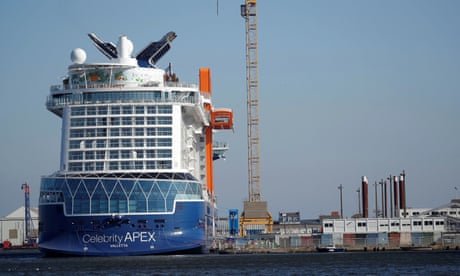
The only place people can expect to be accepted – and therefore safe – is their home country. But that presents a problem of epic proportions. Many sailors are far from wealthy: their home is their boat, they hadn’t planned for a sudden ocean passage, and now have to cross in conditions they wouldn’t otherwise attempt. Lockdown means it has been impossible to source spares or safety gear ahead of the trip, while travel restrictions have meant many can’t get anyone to join as crew. And while most insurance policies stipulate certain crew numbers for the crossing, they also deny storm cover to boats left in hurricane zones.
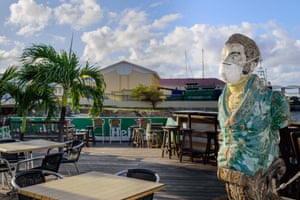
Like many others, Crothers has to choose the least worst option – face hurricane season or cross alone – both without cover. Even food provisioning is tricky. In Sint Maarten food shops have only recently reopened. “My other concern is trying to socially distance while getting supplies for the trip,” he says. “I’m in the age bracket where I can’t afford to get [coronavirus]. Or to get ill in the middle of the Atlantic.”
In these difficult circumstances, sailors are turning to one another for support. They are a resourceful breed – offshore cruising demands it, given the myriad problems that can arise in the middle of the ocean. The OCC has connected more than 150 boats in the west Atlantic heading for Europe: they’re sharing information and offering support on the crossing. This is not an organised flotilla – boats are leaving from as far afield as Antigua, Jamaica and Mexico to destinations ranging from Russia to the UK, Sweden to Greece. Skippers will make their own decisions on routes and speeds.
If I go over, that’s it. It’s hard enough for an able man to get back on board – but with one hand?Garry Crothers, sailor
However they’re jointly tracking journeys, so if problems arise there’s some prospect of help from others within range. In the first groups to leave, two boats with emergency medical workers and one with a surgeon onboard have offered assistance with medical support while at sea; one boat has helped another with water supply.
Crothers has signed up to the list. He is an experienced sailor, but hasn’t done a transatlantic alone. The longest single-handed trip he’s done so far is five days. “Correction,” he says. “All my trips are single-handed.” After a car crash and years of pain, he had his left arm amputated in 2017. “My biggest worry is fixing things one-handed,” he says. “I’m pretty good, but it’s difficult without dropping things, and trying to hold on to the boat.”
His first heading will be north, a route many are taking towards Bermuda. Once he has reached the high pressure area, he should pick up westerly winds to sail slowly towards the Azores. From there, he’ll head for Northern Ireland, taking more than three weeks. He has to sail conservatively. “Because if I go over, that’s it. It’s hard enough for an able man to get back on board – but with one hand?”
The Azores have been a beacon of light in the Atlantic during this crisis. The archipelago, about 800 nautical miles off the coast of Portugal, is of huge strategic importance for boats crossing west to east. Countries along the Atlantic’s eastern shores – Morocco, Senegal, Spain, Portugal, France – have been turning away boats looking for shelter. Island nations such as Cape Verde, off the coast of Africa, lack infrastructure and healthcare to deal with Covid-19, so are more understandably off limits. As Blackwell points out, “People are so panicked in countries that don’t have adequate healthcare, they will do anything to protect themselves.” But grateful sailors have been reporting that they could anchor in Horta, the Azores’ port, with access to fuel and water. The islands have a long history of welcoming boats on transatlantic passages, and maritime institution Peter Cafe Sport has been taking food, medical supplies and marine parts to anchored boats.
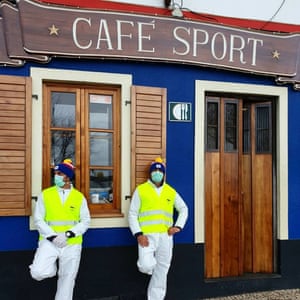
As welcome as this is, lying at anchor doesn’t afford full protection from weather, or the opportunity to rest, make repairs and plan in the middle of exhausting passages. Which is why sailors have been lobbying governments. Sailor and journalist Ole Sal has formally applied to the regional governments of Madeira and the Azores, and to Portugal, France and Spain, to provide safe havens, arguing that the lack of open ports is “increasing the risk of loss of life and damage to vessels”. In Lisbon, yachtmaster Veronique Claus has written to Portugal’s president, Marcelo Rebelo de Sousa, on behalf of 30 international boats. “Certainly for those who are anchored in unsafe and non-sheltered waters, the situation is life-threatening,” she says, noting that two yachts have already been lost after breaking anchors.Advertisement
Crothers will pass near the Azores, but may not stop if restrictions mean he has to stay on anchor; dozens of others, however, including Britons Elena and John Nye, are counting on the stopover for fuel and water (their small boat won’t carry enough). The 33-year-olds, “relative newcomers” to sailing, set off from the British Virgin Islands for Norway on their 34ft sailboat, and hope to rest in the Azores before the onward journey. The Caledonian canal – a shortcut through the north of Scotland – is now closed, so they face a difficult passage via the Shetland Islands, where gale-force winds and perilous seas are common. They should get some shelter in the Western Isles, as the UK is operating some key ports and marinas for transit.
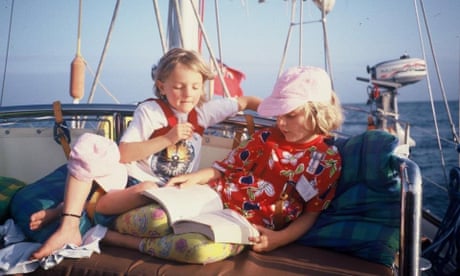
What four years at sea taught me about our relationship to the ocean
Read more
For those heading east towards Spanish and Portuguese coasts, and into the Mediterranean for France, Italy, Greece and elsewhere, it’s a mixed picture. Select ports are allowing entry with authorisation, but authorities are policing territorial waters vigorously and it could be costly to get it wrong. In Athens, several Greek crews sailed into a port during lockdown, were fined €5,000 (£4,380) each by the coastguard and branded pirates in the national press.
The Nyes are taking comfort from other boats making similar journeys. “It’s reassuring that there are others in the same daft situation,” John says. “It feels really good that in case of problems we can find out where the nearest boat is.”
Crothers, whose final destination is Derry, Northern Ireland, is more circumspect. He is looking forward to a pint of Guinness, but the journey is long, and the illusion of strength in numbers falls away when you’re crossing the ocean in very different boats, with different speeds and routes. “Ultimately,” he says, “you’re alone out there.”
News is under threat …
… just when we need it the most. The Guardian’s honest, authoritative, fact-based reporting has never mattered more. As we face the biggest challenge of our lifetimes, we’ll remain with you, so we can all better understand and combat the crisis. But at this crucial moment, news organisations are facing an existential threat. With advertising revenues plummeting, we risk losing a major source of our funding. More than ever before, we need your support to help fill the gap.
We believe everyone deserves to read quality news and measured explanation, in times of crisis and beyond. That’s why we keep our journalism free from a paywall and open to everyone – something enabled only by reader support. You’re now visiting in your millions, and supporting us from 180 countries around the world.
We have upheld our editorial independence in the face of the disintegration of traditional media. Free from commercial ownership and political bias, our journalism is never influenced by billionaire owners or shareholders. Our agenda and opinions are our own, and this makes us different. It means we can challenge the powerful without fear – investigating, disentangling and interrogating.



